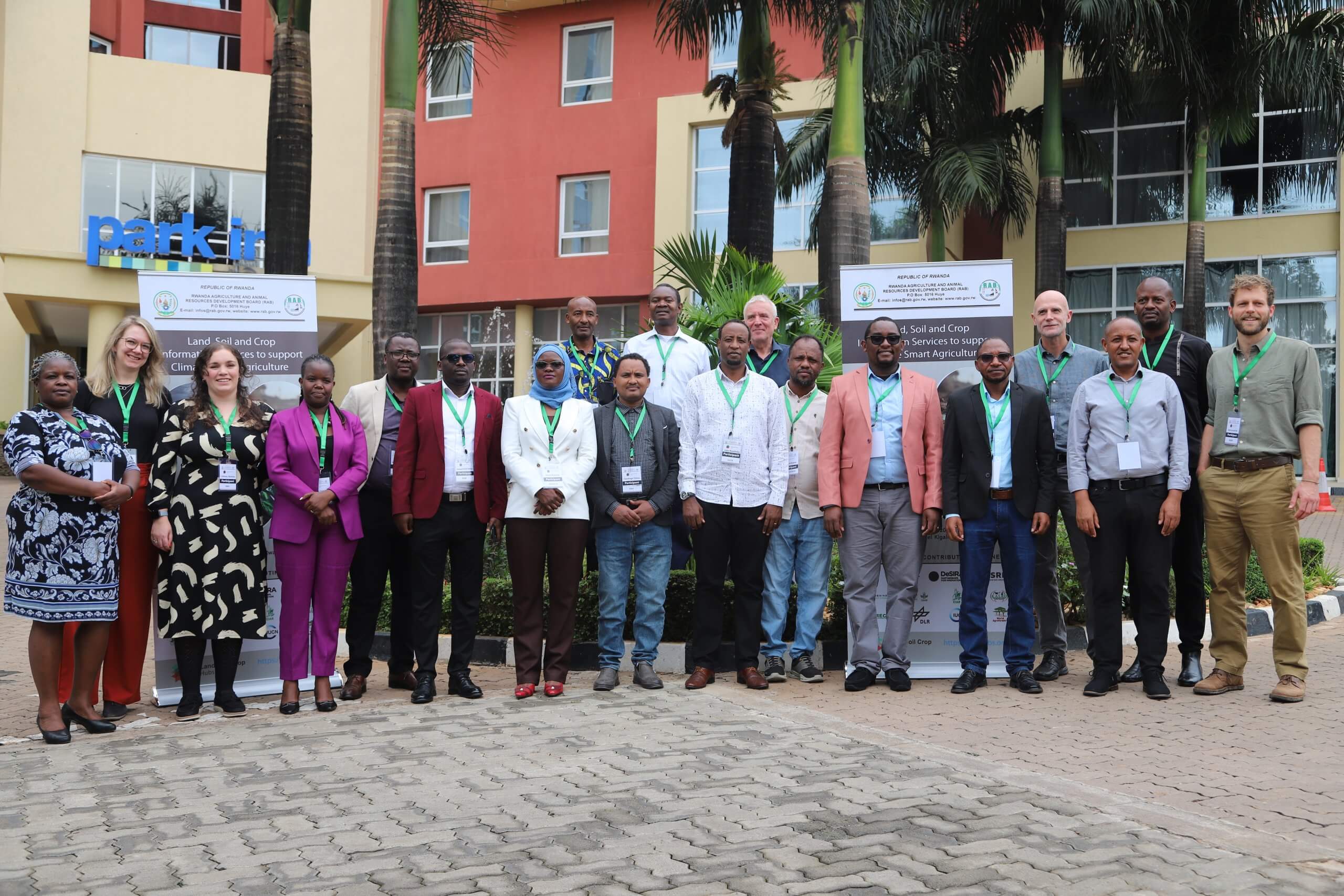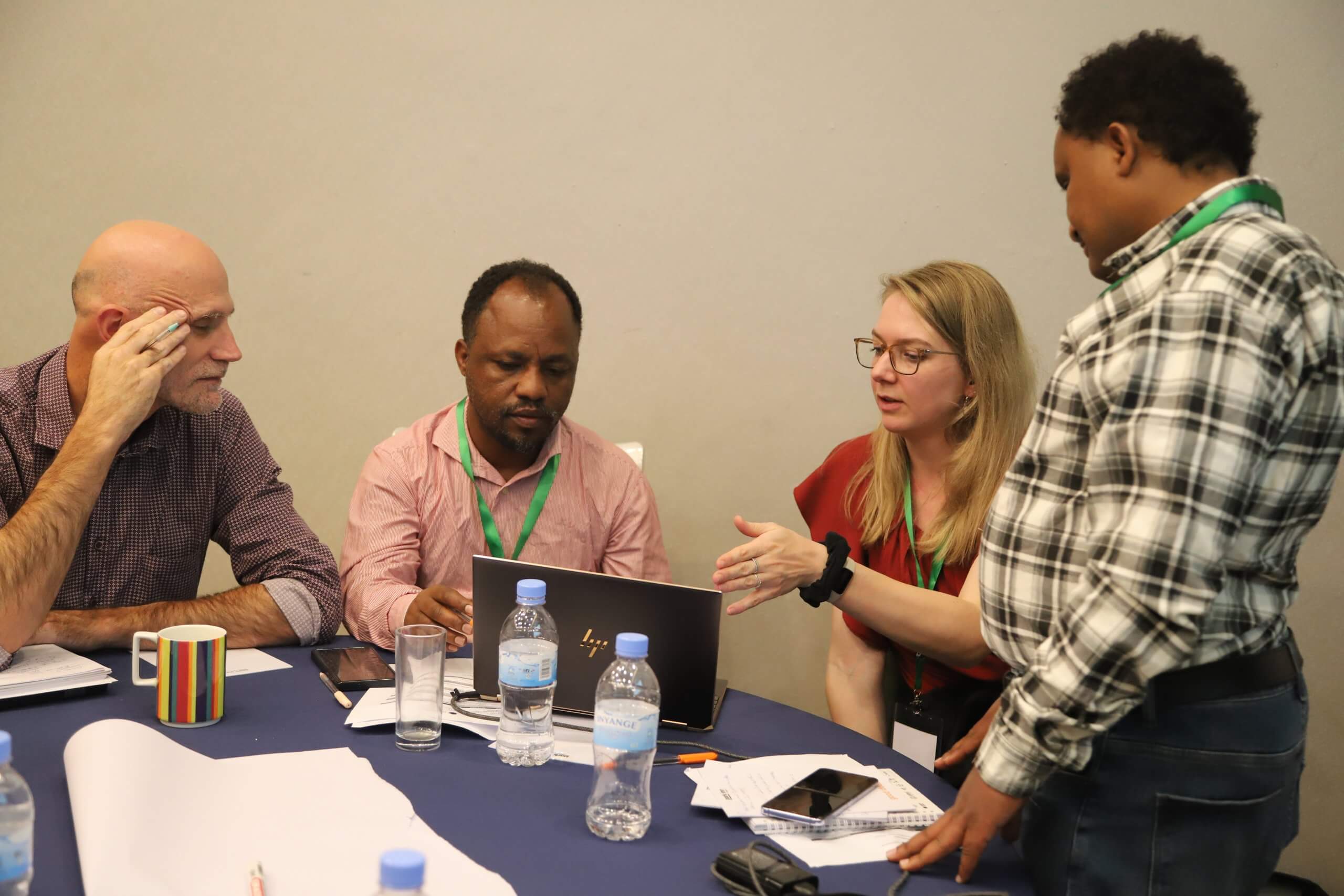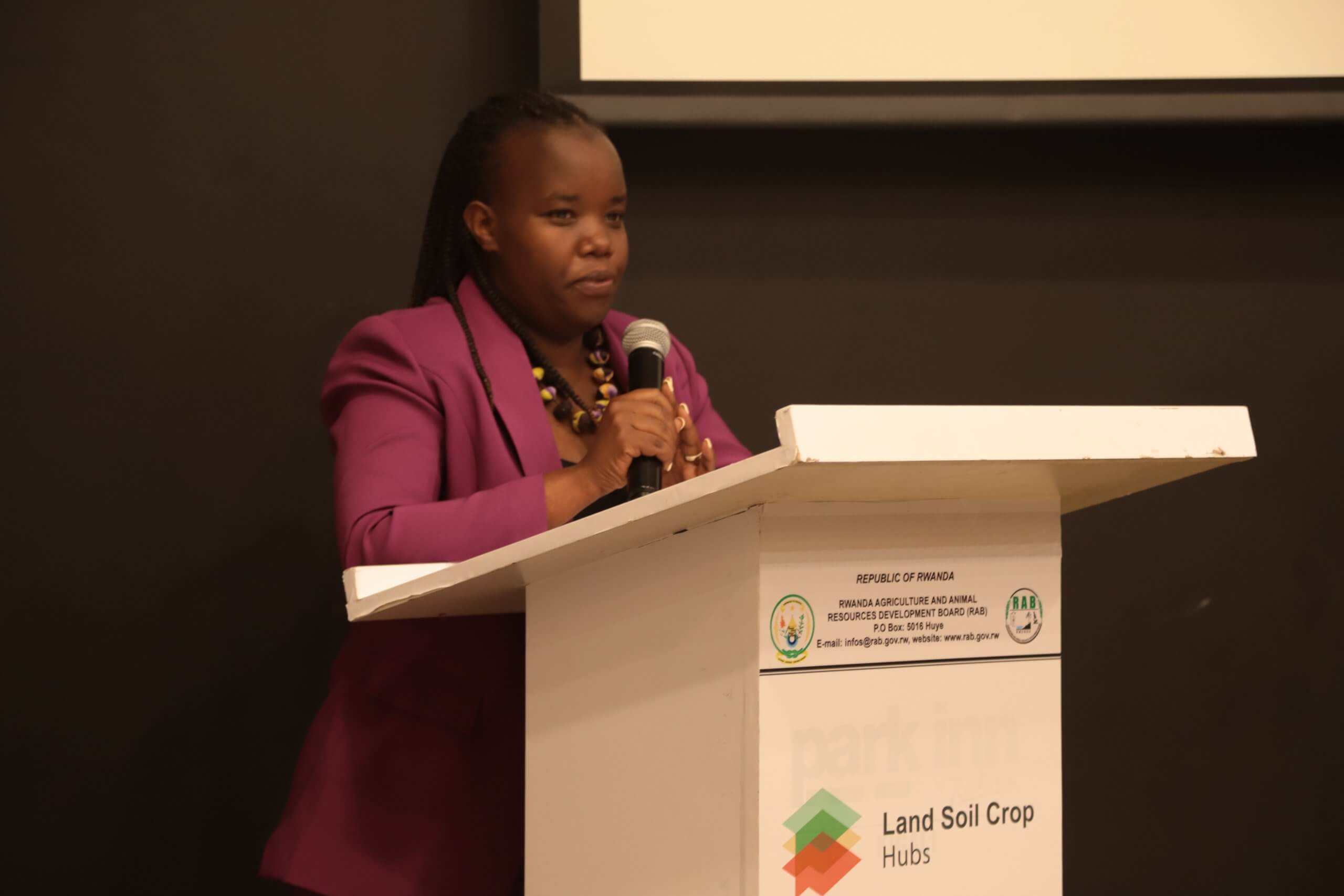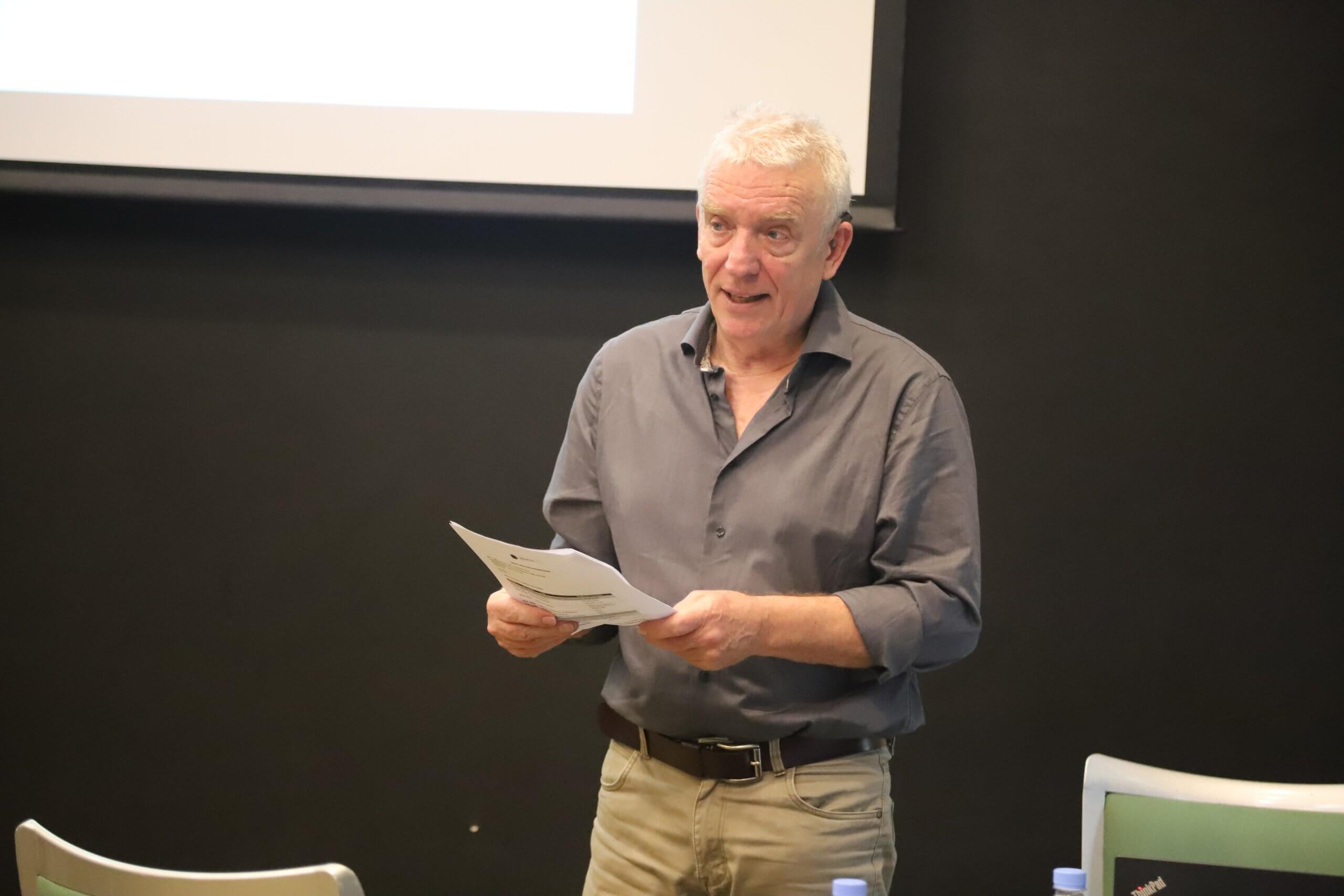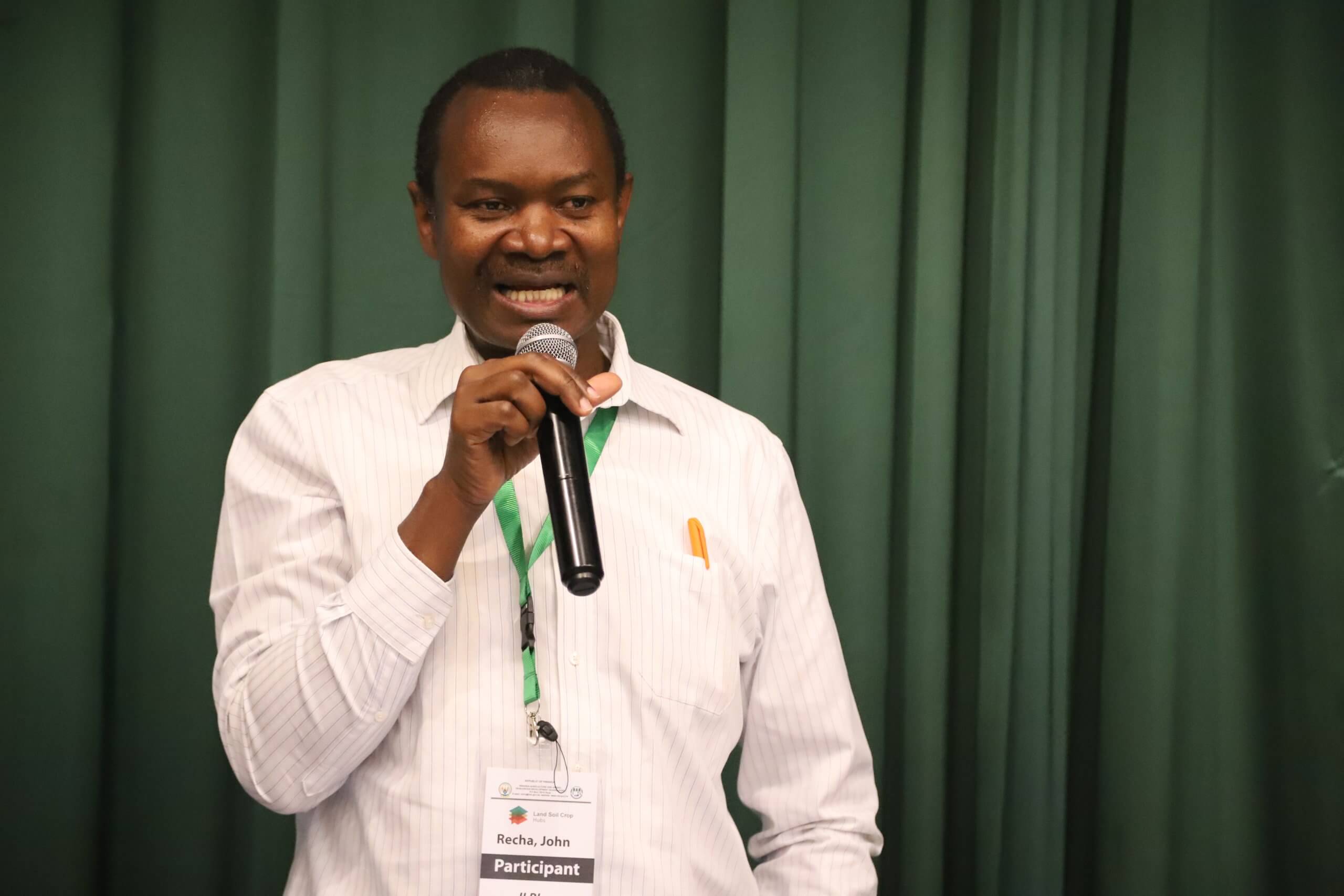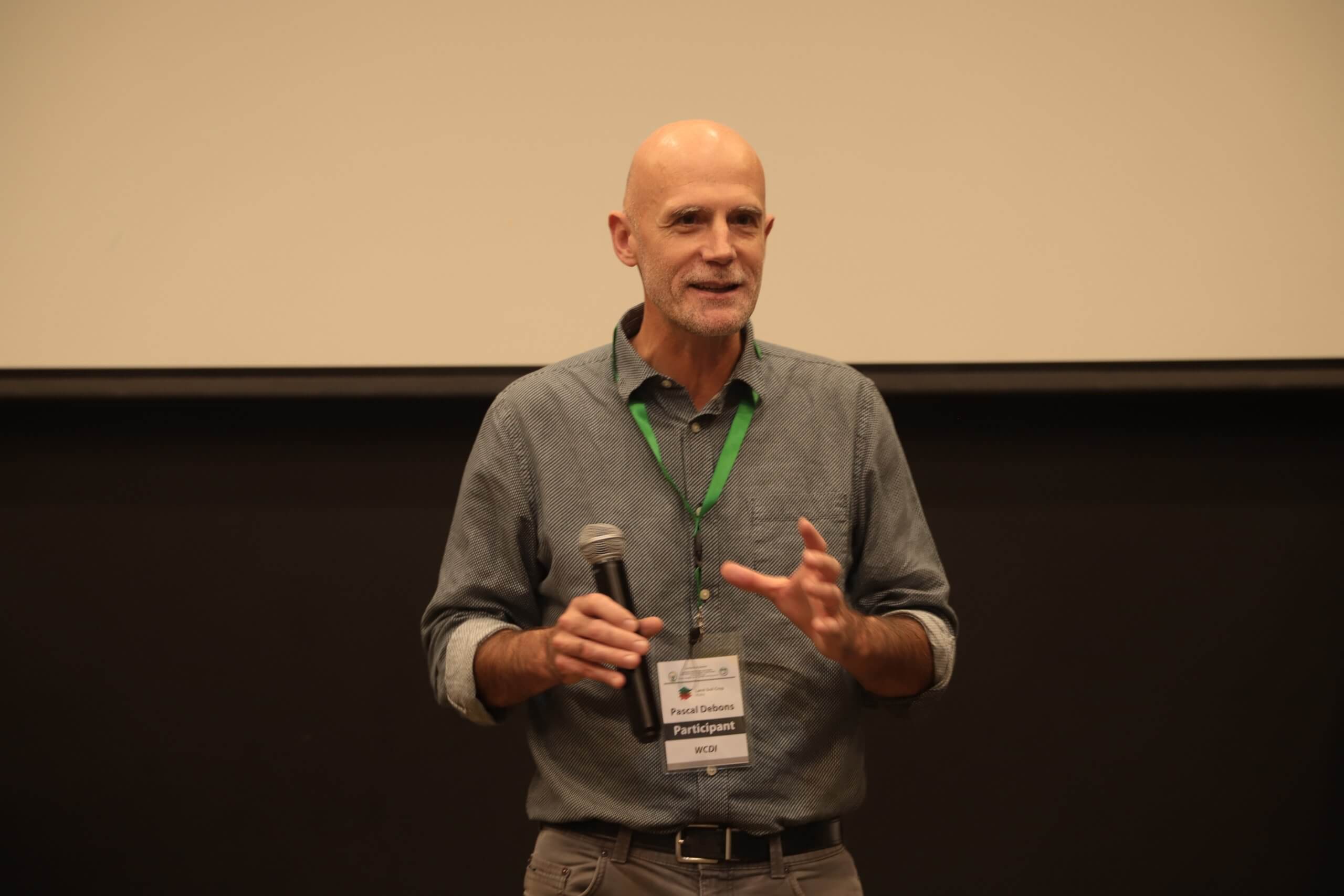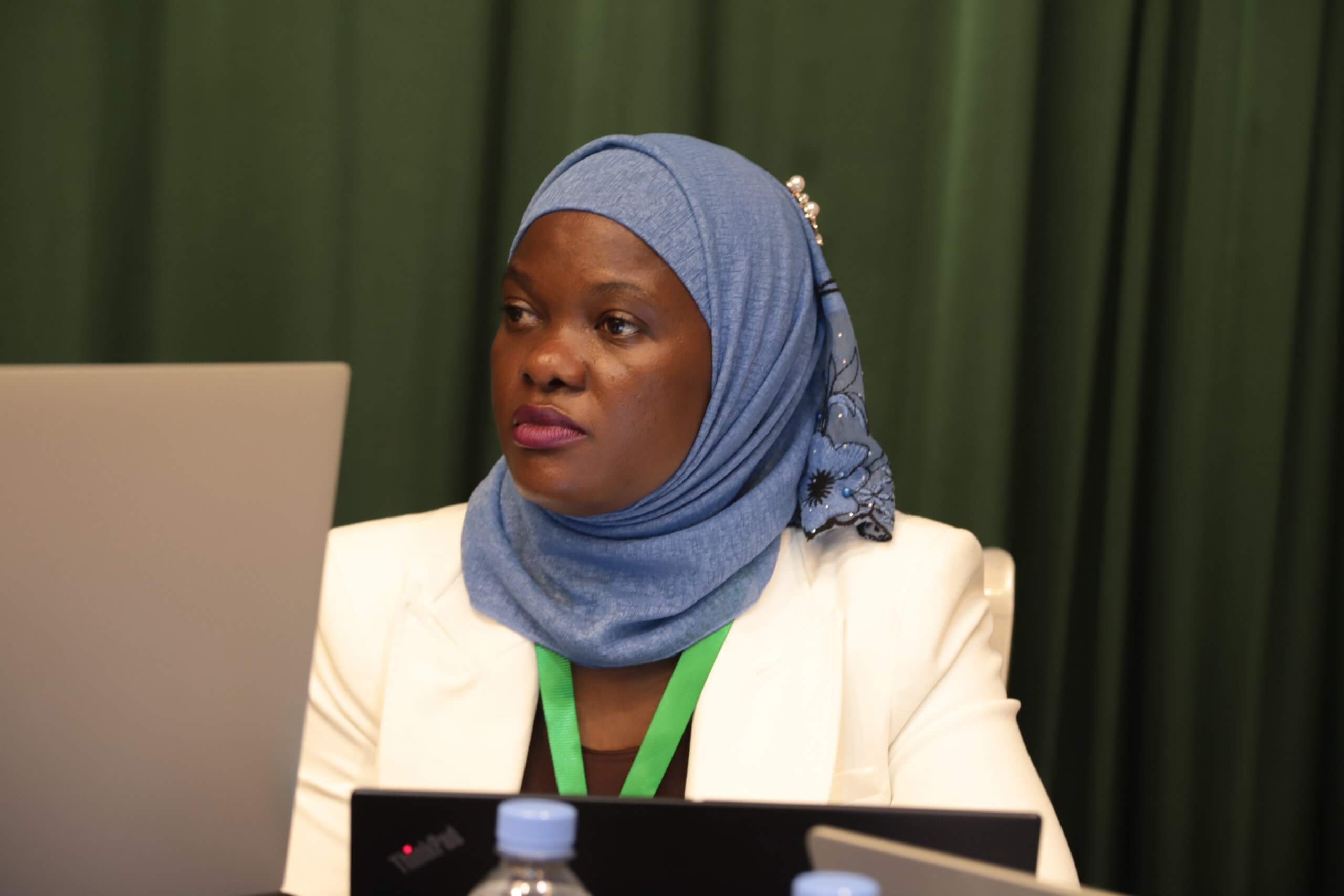Project Partners Convene in Kigali for Land Soil Crop Information Services Annual Meeting
By Genevieve Apio
Kigali, Rwanda, 25–26 November 2024: Key stakeholders in the Land Soil Crop Information Services (LSC Hubs) project (https://lsc-hubs.org) gathered in Kigali for the Annual Project Meeting (APM), aimed at evaluating 2024’s progress, addressing challenges, and preparing for the final project year in 2025.
The meeting was hosted by the Rwanda Agriculture and Animal Resources Development Board (RAB). Project leadsfrom Wageningen Center for Development Innovation (WCDI), ISRIC – World Soil Information, and Wageningen Environmental Research (WEnR), ILRI, ASARECA www.asareca.org, CIFOR-ICRAF www.cifor-icraf.org ,IUCN www.iucn.org and representatives from the National Agriculture Research Institutes from Ethiopia, Kenya, and Uganda joined physically for two days of interactive discussions and strategic planning.
Project partners gathered in Kigali for the Annual Project Meeting
The Land, Soil and Crop Information Services (LSC-IS) to support Climate-Smart Agriculture (DeSIRA) is funded by the European Union through its DeSIRA program and the Netherlands’ Ministry of Foreign Affairs, with a contribution from ISRIC-World Soil Information.
Opening remarks
Dr. Florence Uwamahoro, Deputy Director General of RAB, delivered the opening remarks, emphasized the importance of collaboration and knowledge-sharing among participating countries.
Florence Uwamahoro (RAB) delivering the opening speech.
“We need to have climate-smart technologies that address the impacts of climate change so that we are able to feed the growing population,” she said. She also highlighted RAB’s efforts to integrate digital agriculture platforms to support the sector’s transformation in Rwanda.
Setting the agenda
Dr. André Kooiman, Senior Sustainable Land Management Expert at ISRIC and LSC Hubs Project Coordinator outlined the meeting agenda, focusing on key topics for discussion and expected outcomes.
Key objectives and outcomes include:
- Review 2024 progress and address challenges, including insights from the Mid-Term Review (MTR) and Result-Oriented Monitoring (ROM).
- Develop the 2025 workplan with priorities on:
- Sustainability and scaling inclusive pathways.
- Communication and outreach.
- Synergies with related initiatives.
- Enhance collaboration and knowledge exchange among partners.
- Review finances and define a sustainability strategy for LSC Hubs.
André Kooiman setting up the agenda and objectives of the meeting.
He highlighted the significance of the Participatory Monitoring, Evaluation, Accountability, and Learning (PMEAL) framework, which would guide the discussions on scaling solutions, embedding sustainability, and fostering synergies with related initiatives.
Dr. Kooiman highlighted progress under LSC Hubs’ in consolidating fragmented information into accessible platforms, enabling local stakeholders to make data-driven decisions. He noted that the meeting’s outcomes would help shape the final year of the project.
Connecting projects for sustainability
In a presentation, Dr. John Recha, Scientist in Climate Smart Agriculture at ILRI, explained how the LSC Hubs project had been successfully linked to other initiatives, including AICCRA and the Kenya Landscape Actors Platform. He showcased how this integrative approach had enhanced the project’s visibility among diverse stakeholder groups.
John Recha presenting during the meeting.
He noted the collaborations provided a model for sustainability, ensuring that the benefits of the LSC Hubs project could continue to influence agricultural practices even after the project ends.
These insights set the tone for the meeting, highlighting the interconnected efforts necessary to achieve the shared goal of sustainable, climate-smart agriculture. Work package leads (WP2, WP3, WP5) presented their updates, challenges faced in implementation, and plans for 2025
Pascal Debons (WCDI) presenting during a working session.
Participants during the meeting.
Moving forward
The event highlighted the crucial role of partnerships in achieving the LSC Hubs’ mission to support agricultural innovation through robust soil, land, and crop information systems. As the project enters its final year, participants reaffirmed their commitment to advancing sustainability, scaling impactful solutions, and ensuring the success of the LSC Hubs initiative.
With a renewed focus on embedding sustainability, fostering inclusivity, and amplifying synergies, the LSC Hubs project is poised to leave a lasting legacy in agricultural research and development across East Africa.

